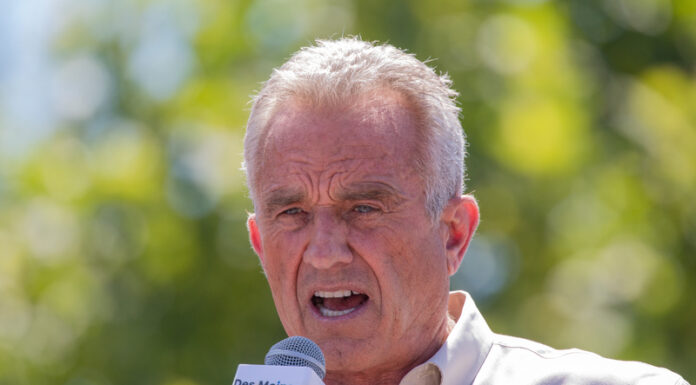Health and Human Services Secretary Robert F. Kennedy Jr. announced the cancellation of 22 mRNA vaccine development projects worth nearly $500 million, sparking widespread criticism from public health experts who warn the decision could severely hamper the United States’ ability to respond to future pandemics.
Kennedy justified the cuts by claiming that mRNA vaccines are ineffective against mutating viruses and pose more risks than benefits for respiratory infections. The funding cuts target projects under the Biomedical Advanced Research and Development Authority within the Department of Health and Human Services, affecting major institutions and companies, including Emory University, Pfizer, Moderna, and AstraZeneca.
The decision represents a stark departure from the Trump administration’s previous position on mRNA technology. During his first term, President Donald Trump praised the Pfizer-BioNTech COVID-19 vaccine as a “medical miracle” when it received emergency authorization in December 2020. The mRNA vaccines were central to Operation Warp Speed, the public-private partnership that accelerated COVID-19 vaccine development and manufacturing.
Former Trump administration officials expressed strong opposition to the cuts. Dr. Jerome Adams, who served as Surgeon General during Trump’s first term, warned that the decision could prove fatal. Adams stated that “people are going to die” if the United States backs away from mRNA vaccine development, emphasizing that the technology saved upward of two million lives during the COVID-19 pandemic.
Public health experts have challenged Kennedy’s scientific justifications for the funding cuts. Dr. Paul Offit, director of the Vaccine Education Center at the Children’s Hospital of Philadelphia, disputed Kennedy’s claims about mRNA vaccine effectiveness, noting that virus mutations present challenges for all vaccine types, not just mRNA technology. Dr. Michael Osterholm, director of the Center for Infectious Disease Research and Policy at the University of Minnesota, called the decision “the most dangerous public health decision I have ever seen made by a government body.”
The timing of the cuts has raised particular concerns given the ongoing threat of H5N1 avian flu. The virus has shown concerning mutations, including the ability to transmit between dairy cattle and from cows to humans. Experts warn that H5N1 is potentially one mutation away from easier human-to-human transmission, which could trigger a pandemic more lethal than COVID-19. The funding cuts include canceling Moderna’s development of a late-stage H5N1 avian flu vaccine.
Beyond pandemic preparedness, the cuts may impact cancer research and treatment development. mRNA technology shows promise for therapeutic cancer vaccines, with ongoing clinical trials for melanoma, pancreatic cancer, and other malignancies. In a randomized phase 2b trial, the individualized mRNA-4157 vaccine combined with pembrolizumab reduced the risk of recurrence or death by 44 percent in patients with resected high-risk melanoma.
The decision eliminates research infrastructure that took decades to develop. mRNA vaccine technology, while appearing to emerge rapidly during the COVID-19 pandemic, actually built upon more than 20 years of research. The technology’s advantage lies in its speed of development and adaptability to new viral strains, capabilities that traditional egg-based vaccine production cannot match.
International experts have warned that the cuts could cede American leadership in biotechnology to other nations. Rebecca Katz, a global health security expert and former State Department adviser, characterized the decision as “a self-inflicted wound to a vital organ.” Other countries may struggle to fill the gap left by reduced American investment, as mRNA vaccine production requires specialized expertise, quality control, and complex supply chains.
Kennedy’s tenure as Health Secretary has included several controversial moves regarding vaccine policy. He dismissed all 17 members of the scientific advisory panel on vaccines at the Centers for Disease Control and Prevention and announced that COVID-19 vaccines will no longer be recommended for healthy children and pregnant women.
The Department of Health and Human Services defended the decision, stating that the agency is shifting investment toward whole-virus inactivated vaccines, which officials claim offer broader immune responses and have longer safety track records. However, public health experts argue that this represents a step backward from technology that demonstrated superior adaptability and manufacturing speed during the COVID-19 pandemic.
The funding cuts have also raised concerns about their potential impact on scientific talent and innovation. Research programs focused on pandemic preparedness are closing, and postdoctoral researchers may struggle to find positions without continued federal support for mRNA research initiatives.








